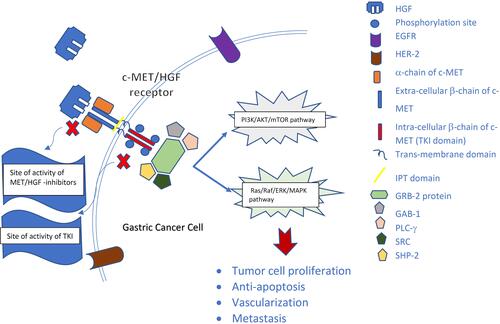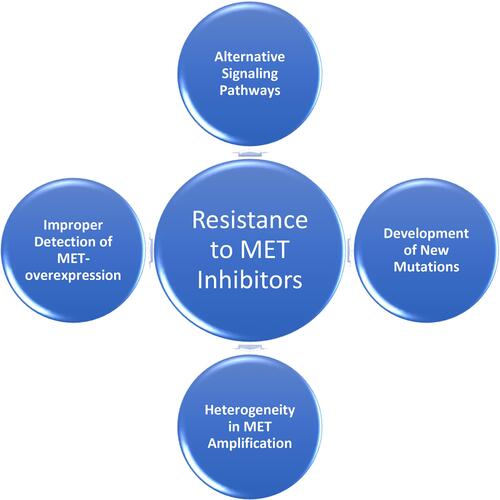Figures & data
Figure 1 c-MET/HGF pathway in gastric cancer pathogenesis. Hepatocyte growth factor (HGF) binds to c-MET, causing phosphorylation and activation of tyrosine kinase domain with consequent triggering of down-stream signaling via PI3K/AKT/mTOR pathway as well as RAS/RAF/ERK/MAPK pathway, eventually leading to tumor cell proliferation, tumor survival, angiogenesis and metastasis.

Table 1 MET Alteration in GC
Table 2 MET Inhibitors

